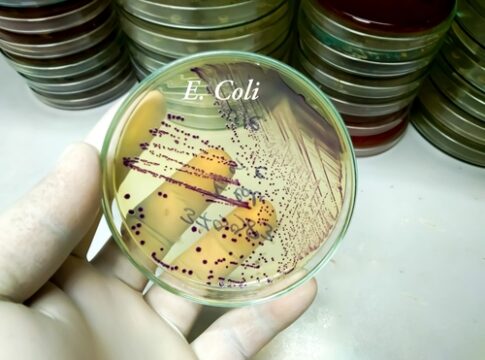The FDA has issued an urgent recall for multiple cheese varieties from Twin Sisters Creamery after detecting a dangerous strain of E. coli, exposing consumers nationwide to a serious foodborne pathogen for nearly three months before authorities acted.
Three-Month Contamination Window Raises Safety Concerns
Twin Sisters Creamery distributed potentially contaminated cheese products from July 27 through October 22 this before the FDA announced the recall. The affected products—Whatcom Blue, Farmhouse, Peppercorn, and Mustard Seed varieties—were sold in 2.5-pound round wheels throughout this extended period. This 87-day distribution window allowed considerable consumer exposure before regulatory intervention, highlighting potential gaps in our food safety surveillance system that should concern Americans who expect their government to protect them from preventable health threats.
“`
🚨 Recall Alert
Peterson Company recalls Twin Sisters Creamery Whatcom Blue & Farmhouse Cheese due to possible E. coli 🧀🦠📍 Sold in CO, ID, OR, WA
🗓️ Aug 14–Oct 24, 2025
❗ 3 infections in OR & WA🔗 https://t.co/0Qu7x70Unr #FoodRecall #FDAAlert
“` pic.twitter.com/JM7ZBCXypl— USA Recalls (@USA_Recalls) October 27, 2025
Dangerous E. Coli Strain Threatens Public Health
E. coli O121:H19 represents a serious public health threat as a Shiga toxin-producing strain capable of causing severe gastrointestinal illness. Unlike more commonly reported E. coli strains, this variant can lead to hemolytic uremic syndrome, a life-threatening condition particularly dangerous for children, elderly citizens, and those with compromised immune systems. The FDA’s regulatory action came only after routine surveillance or illness reports triggered microbial testing. Food safety experts emphasize that rigorous testing and hygiene protocols are essential in cheese production, particularly for small-scale operations that may lack the comprehensive safety infrastructure of larger manufacturers.
Artisanal Producer Faces Regulatory Scrutiny
The recall exposes vulnerabilities in artisanal cheese production, where smaller operations often struggle to maintain the same safety standards as large-scale manufacturers. Twin Sisters Creamery now faces significant financial losses from recalled inventory, potential litigation, and lasting reputational damage that could devastate this small business. While Americans value quality artisanal products and want to support small producers, we also expect basic food safety standards to be met consistently. This incident may prompt industry-wide reviews of safety practices and increased FDA oversight, potentially leading to more stringent testing requirements that could burden small businesses already struggling with regulatory compliance costs.
90 % of USA cheese is fake!Traditionally, cheese is made with just four ingredients, milk,salt,starter culture & an animal rennet.
But in today’s industrial food supply, 90% of cheeses contains something called FPC, a genetically modified version of animal rennet made by #Pfizer. pic.twitter.com/GCBjbSbWRS— Humanbydesign (@Humanbydesign3) February 25, 2025
Economic and Industry Ramifications
Beyond the immediate health concerns, this recall carries substantial economic implications for multiple stakeholders. Retailers must remove products from shelves, address customer concerns, and absorb potential financial losses while avoiding liability. The direct costs of recall logistics, lost sales, and potential litigation will impact Twin Sisters Creamery’s viability. More broadly, reduced consumer confidence in specialty foods could harm the entire artisanal cheese sector. Past E. coli outbreaks linked to raw milk cheese have triggered increased scrutiny and calls for stricter regulation, creating tension between food safety advocates and those who champion small business viability and innovation.
Consumer Action Required
The FDA urges consumers who purchased the recalled cheese products to stop consuming them immediately and return them to their place of purchase. Retailers have been directed to remove all affected products from sale. Public health agencies continue monitoring for illness reports that may be linked to these cheeses. Americans deserve transparency and accountability from both producers and regulators when food safety failures occur. While no confirmed illnesses have been reported in available sources, the potential for serious health consequences remains until all contaminated products are removed from circulation and consumers are properly informed.
Sources:
FDA Posts Recall of E. coli-Tainted Cheese – Food Poison Journal
Recalls, Market Withdrawals, & Safety Alerts – FDA
Food Alerts & Recalls Affecting Texas – DSHS


